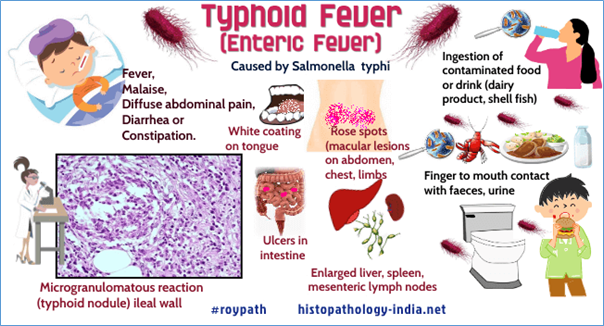

27th June 2022 (6 Topics)
Context
According to a study, the bacteria causing typhoid fever is becoming increasingly resistant to some of the most important antibiotics for human health.
About
Key findings of the study:
- The largest genome analysis of Salmonella Typhi (S. Typhi) shows that resistant strains, almost all originating in South Asia have spread to other countries nearly 200 times since 1990.
- The researchers noted that typhoid fever is a global public health concern, causing 11 million infections and more than 1,00,000 deaths per year.
- It is most prevalent in South Asia, which accounts for 70% of the global disease burden.
- It also has significant impacts in sub-Saharan Africa, Southeast Asia, and Oceania, highlighting the need for a global response.
- Antibiotics can be used to successfully treat typhoid fever infections, but their effectiveness is threatened by the emergence of resistant S. Typhi strains.
About Typhoid fever:
- Typhoid fever is caused by Salmonella typhi bacteria.
- Typhoid fever is rare in developed countries.
- It is still a serious health threat in the developing world, especially for children.
- Contaminated food and water or close contact with an infected person cause typhoid fever.
- Signs and symptoms usually include:
- High fever
- Headache
- Stomach pain
- Constipation or diarrhea
- Causes
- Typhoid fever is caused by dangerous bacteria called Salmonella typhi.
- Salmonella typhi is a multiorgan pathogen characterized to inhabit the lymphatic tissues of the small intestine, liver, spleen, and bloodstream of infected humans.




